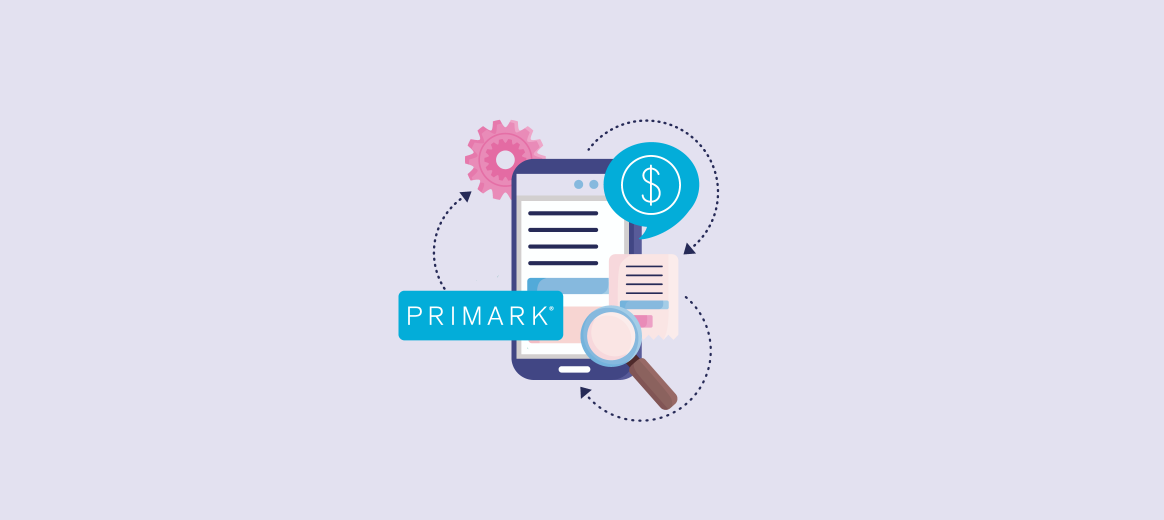At the recent Gartner CFO Conference in London, Primark shared its compelling journey of transforming its procure-to-pay (P2P) processes.
Maura Mulderry, Director of Financial Planning & Analysis at Primark, highlighted how leveraging SoftCo’s AI-powered Purchase-to-Pay (P2P) automation software has revolutionized the company’s efficiency. Primark’s story of balancing technology adoption with strategic financial leadership provides critical lessons for CFOs and finance professionals eager to optimize their operations and boost efficiency.
For CFOs aiming to optimize their own financial operations, here are five key lessons from Primark’s automation journey that can inspire similar success.
1. Prioritize Core Financial Processes Before Major ERP Implementations
Primark’s transformation journey began with a decision to focus on optimizing its core financial processes before jumping into a massive ERP overhaul. Like many large enterprises, Primark had struggled with inefficient invoice processing and delayed supplier payments, which created bottlenecks and hampered operational efficiency. Recognizing that these issues could undermine the success of an ERP implementation, Primark first zeroed in on their P2P process.
Leveraging SoftCo’s retail-specific P2P automation, Primark took a systematic approach, automating their payment and invoicing workflows to eliminate inefficiencies. As a result, they created a stable foundation for cleaner data and faster operations, ultimately ensuring their subsequent ERP integration was smooth and effective. For any finance leader considering an ERP overhaul, Primark’s story serves as a reminder that stabilizing core systems first can significantly improve the outcome.
2. Change Management and Stakeholder Engagement is Crucial
One of the challenges Primark initially faced was resistance from internal stakeholders, particularly from the IT department, which hadn’t been fully involved in the early phases of the P2P transformation. This gap in communication led to delays and misunderstandings regarding the purpose of the changes. Primark quickly recognized that a successful transformation requires deep collaboration across departments.
To address this, Primark implemented a robust change management strategy. They organized cross-departmental meetings, including IT, finance, and procurement, to align everyone on the transformation goals. By clearly articulating the benefits of the automation initiative and training stakeholders on the new processes, Primark garnered the necessary buy-in to move forward smoothly. This approach transformed initial resistance into widespread support, highlighting the importance of early and frequent stakeholder engagement.
3. Strategic Focus on Supplier Relationships and Data Accuracy
One of the pivotal aspects of Primark’s P2P transformation was its emphasis on repairing and strengthening relationships with suppliers. For Primark, suppliers were not just vendors but key partners in their fast-moving retail supply chain. Historically, delays in payments had strained these relationships, leading to operational bottlenecks. Primark recognized that addressing this issue was critical not only for maintaining a smooth supply chain but also for gaining a competitive edge in the industry.
By automating their P2P processes, Primark was able to ensure accurate and timely payments, which restored trust with their suppliers. This shift allowed suppliers to feel more secure in their partnership with Primark, encouraging better collaboration and more reliable service. In an industry where efficient supply chains are essential, these improved relationships became a significant competitive advantage.
Automation isn’t just about internal efficiency—it’s about building trust with partners through reliability. Implementing processes that ensure data accuracy and on-time payments can transform transactional supplier interactions into long-term, strategic partnerships. Moreover, the accuracy of financial data provides better insights for decision-making, allowing CFOs to make informed choices that benefit both their company and their external partners.
4. Take an Agile Approach to System Transformation
Rather than committing to a lengthy and disruptive ERP implementation, Primark adopted a more agile approach to system transformation. By breaking the transformation into smaller phases, Primark achieved quick wins that immediately delivered operational benefits. These modular improvements provided faster value realization, helping the company build momentum while justifying continued investment in the entire transformation process.
This agile approach also allowed Primark to remain flexible and adaptable to the evolving needs of the business. By rolling out changes incrementally, Primark significantly reduced the risks typically associated with large-scale overhauls. Furthermore, this phased approach boosted stakeholder engagement through regular updates and progress reviews, aligning key departments like finance and IT.
Finally, this agile approach helped Primark manage costs more efficiently. By spreading expenses over time and delivering early results, the company not only mitigated the financial burden of a full-scale transformation but also demonstrated the value of each phase, making it easier to secure ongoing investment.
5. Leveraging Technology for Efficiency Gains and Employee Retention
Primark’s automation of its P2P process streamlined operations, freeing employees from manual tasks and allowing them to focus on more strategic, value-added activities. By shifting the finance team’s workload toward higher-impact work, Primark not only improved efficiency but also created a more engaging and fulfilling environment for its staff.
This transition helped enhance job satisfaction and foster a sense of purpose within the finance team. Reduced repetitive tasks allowed employees to focus on strategic contributions, improving retention and fostering long-term commitment. Automation, for Primark, became not just a tool for efficiency, but a way to empower and motivate its workforce.
Conclusion
By utilizing SoftCo’s retail-focused P2P automation solution, Primark’s story demonstrates the tangible benefits of blending technological innovation with strategic leadership. By prioritizing core financial processes before jumping into an ERP overhaul, engaging stakeholders through effective change management, focusing on supplier relationships, and taking an agile approach to system transformation, Primark reaped both operational and relational benefits. Additionally, by automating manual tasks, the company not only boosted efficiency but also enhanced employee satisfaction and retention.
CFOs and finance leaders can learn from Primark’s experience by recognizing that successful transformation requires a balance between technology, people, and strategy. Finance professionals can confidently navigate transformations, driving efficiency, engagement, and long-term success with these lessons in hand.


